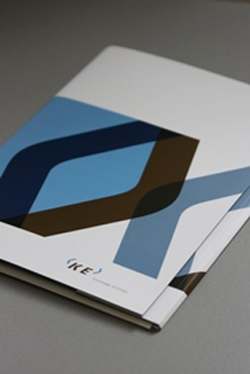KE publishes recommendations for a Repository for Training Materials on RDM
Posted: November 14th, 2016 | Author: Sven | Filed under: Report | Tags: Knowledge Exchange, Training | Comments Off on KE publishes recommendations for a Repository for Training Materials on RDM Knowledge Exchange (KE) has recently released recommendations for a repository for training materials on research data management (RDM). Following a workshop of experts in February 2016 in London and the publication of a report called “Training for research data management: comparative European approaches”, the currently published report focusses on requirements for a repository on RDM training materials.
Knowledge Exchange (KE) has recently released recommendations for a repository for training materials on research data management (RDM). Following a workshop of experts in February 2016 in London and the publication of a report called “Training for research data management: comparative European approaches”, the currently published report focusses on requirements for a repository on RDM training materials.
One of the practical outcomes of the workshop was that no international repository for information on training resources currently exists. To make existing nationally focused training material Findable, Accessible, Interoperable and Reusable (FAIR) an international initiative is needed to establish a repository or platform to deposit or link training materials on RDM. This would also help to train the urgently needed data stewards requested in the report ‘Realising the European Open Science Cloud’ by the High Level Expert Group on the European Open Science Cloud (EOSC).
In today’s changing research environment, there is a clear need for researchers and research support staff (at all stages in their careers) to nurture their skills and know-how in the management of research data. To support training for RDM it would be very helpful for different stakeholders (professors, post-docs, PhD candidates, graduates, undergraduates, librarians, research administrators and others) to easily find training materials that can address their specific need for education and by doing so, stimulate and respond to a distinct eagerness to learn.
The report ‘Knowledge Exchange recommendations for a Repository for Training Materials on Research Data Management‘ now lists six areas for recommendations for such repositories:
- Metadata: From the FOSTER project the system architecture for the portal along with a selection of use cases as well as the metadata taxonomy could be considered for reuse.
- Sustainability: Any registry should collaborate with already existing national or international infrastructures. Such a cooperation might encourage deposit by the respective country/constituency and allow for aggregation at country level as well as providing a generic search across all resources.
- Local Integration: The service should also have local links to library schools, to professional associations, research data training networks, post graduate training centres etc.
- Language issue: The service should enable the findability of material that would have been created in other languages.
- Deposit and Link: A repository should offer at least two options:
1) deposit and store training materials and
2) offer to integrate training materials stored elsewhere by assigning metadata. - Persistent Identifier: Assigning a DOI to all deposited training materials will make the material citable, sustainable and easy to find.
To conclude, the Knowledge Exchange Expert Group on Research Data highly recommends the establishment of an international repository for Training Materials on RDM. More information is available here.
In Germany we are currently in the process of collecting training materials already available (primarily resources in German language).
Photo: Own work, License: CC-BY-SA 3.0







